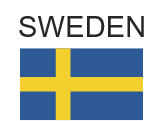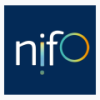This table here below aims at providing an overview of all the initiatives, such as the political communications, guidelines, and legislation, related to interoperability that have been put in place in Sweden.

National Interoperability Framework
The National Interoperability Framework (NIF) is a set of standards, policies, and guidelines that ensure that information and communication technology (ICT) systems can communicate and share data seamlessly. It promotes the development of interoperable systems that facilitate data exchange and collaboration between different organizations and levels of government. The NIF provides a common language and a framework for ensuring that ICT solutions are compatible, secure, and reliable, which enhances the efficiency of public services and improves citizen outcomes.
|
Swedish framework for digital collaboration (Svenskt ramverk för digital samverkan) Year: 2019 |
The Swedish framework for digital collaboration (i.e. the Swedish version of the EIF) will support all public and publicly funded organisations to navigate in the same direction and thereby exchange information effectively. |
Other Initiatives
It is a strategic initiative that aims to accelerate the digital transformation in the Nordic-Baltic region. Overall, the goal is to increase mobility and integration in the region through seamless access to digital services across borders.
More specifically, the programme has the following goals:
- Building secure and trusted electronic identification (eID) interoperability;
- Promoting cross-border data exchange between authorities;
- Enabling digital services across borders; and
- Establishing an open funding mechanism (the CBDS Fund).
Year: 2022
Two governmental investigations were launched during 2022 regarding enhanced interoperability: (i) developed regulation and control of interoperability when sharing data within the public administration and from the public administration to external actors (2022:118); and (ii) health data as a national interest – legislation for interoperability (2022:98).
Year: 2022
To improve interoperability within the healthcare and social service system, the Swedish eHealth Agency is working with an online catalogue of eHealth specifications. The catalogue furthers the vision to eliminate ambiguity when systems, professionals and organisations exchange information. Harmonised and reusable specifications – and a shared commitment to ensure their widespread adoption – are fundamental to achieve interoperability.
Year: 2019
This strategy, among other things, lays the foundation for a more standardised and interoperable national approach to base registries and information exchange.
Year: 2018
During the last years, the Swedish government increased its focus on interoperability and standardisation. Proof of this are the different government assignments for standardised and interoperable information and data exchange.
Year: 2018
The main focus of the eCollaboration programme (eSamverkansprogrammet) is to promote interoperability through the use of guidelines, sharing of knowledge, best practices and networking.
Year: 2015

